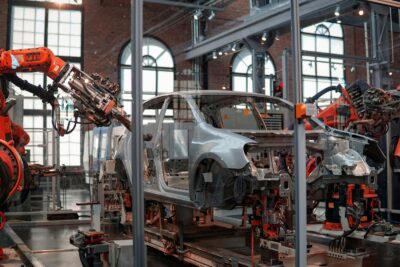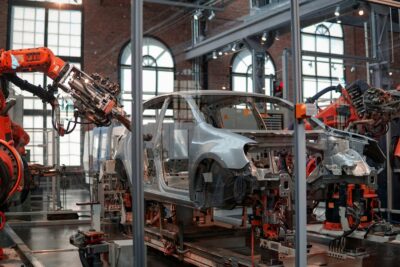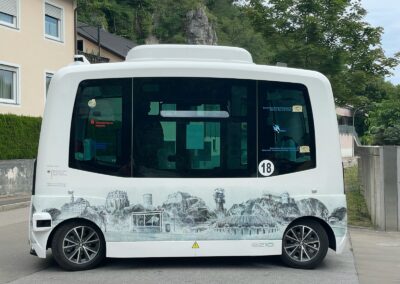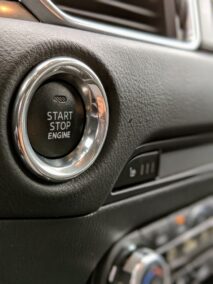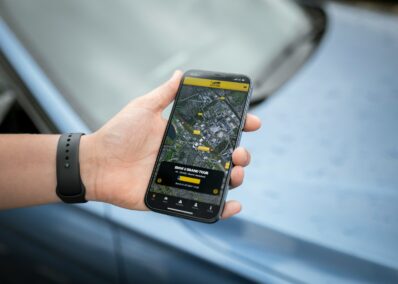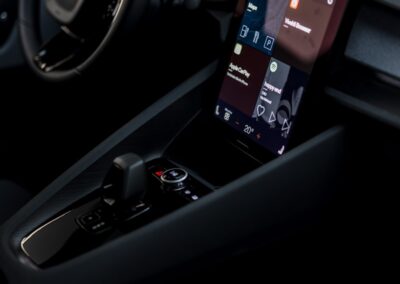Enhancing Automotive Design with Digital Twins
The Role of Digital Twins in Modern Vehicle Design
The adoption of digital twins in the automotive industry is transforming how vehicle designs are tested and refined before production. Digital twins, which are virtual replicas of physical assets, allow manufacturers to simulate and analyze the performance of their vehicles under various conditions. This innovative approach significantly enhances the efficiency and accuracy of the design process, reducing time and costs associated with physical prototyping.
In regions like Saudi Arabia and the UAE, where the automotive market is rapidly growing, the implementation of digital twins offers a competitive edge. By creating virtual models of vehicles, companies can conduct extensive testing and make data-driven decisions. This not only ensures the production of high-quality vehicles but also fosters innovation, enabling manufacturers to explore new design concepts and technologies.
Digital twins leverage advanced technologies such as artificial intelligence (AI), machine learning, and the Internet of Things (IoT) to gather real-time data from sensors embedded in physical vehicles. This data is then used to create accurate simulations that predict how a vehicle will perform under various conditions. As a result, manufacturers can identify potential issues and optimize designs before they move to the production stage.
Benefits of Digital Twins in the Automotive Sector
One of the primary benefits of using digital twins in the automotive industry is the ability to conduct comprehensive testing without the need for physical prototypes. Traditional vehicle testing involves creating multiple physical prototypes, which is both time-consuming and expensive. Digital twins eliminate this need by providing a virtual environment where engineers can test different design variations and scenarios.
Moreover, digital twins enhance the ability to customize vehicles to meet specific market demands. In markets such as Riyadh and Dubai, where consumer preferences can vary widely, manufacturers can use digital twins to tailor their designs to local tastes and regulatory requirements. This level of customization helps manufacturers meet the unique needs of their customers and gain a competitive advantage in these regions.
Another significant advantage is the improvement in collaboration across different departments within a manufacturing organization. Digital twins facilitate better communication and coordination between design, engineering, and production teams. By providing a single source of truth, digital twins ensure that all stakeholders have access to the same information, reducing the risk of errors and misunderstandings during the development process.
Integrating Emerging Technologies with Digital Twins
The integration of digital twins in the automotive industry with other emerging technologies such as blockchain and the metaverse further enhances their capabilities. Blockchain technology can be used to create secure and transparent records of the data generated by digital twins. This ensures data integrity and provides a reliable basis for making critical decisions during the design and production phases.
Additionally, the concept of the metaverse offers new possibilities for immersive and collaborative vehicle design. By creating virtual environments where designers and engineers can interact with digital twins in real-time, the metaverse enables more dynamic and interactive design processes. This approach can lead to more innovative and user-centric vehicle designs, ultimately improving the overall customer experience.
Generative AI is another technology that complements digital twins by automating the design process. Generative AI algorithms can analyze vast amounts of data from digital twins and generate optimized design solutions based on specific criteria. This not only speeds up the design process but also ensures that the final product meets high standards of performance and safety.
Future Prospects and Business Implications
Driving Business Success with Digital Twins
The adoption of digital twins in the automotive industry has significant implications for business success. By streamlining the design and testing processes, digital twins enable manufacturers to bring new vehicles to market faster. This agility is crucial in today’s competitive automotive landscape, where speed to market can be a decisive factor in gaining market share.
In addition, digital twins help reduce costs associated with vehicle development. By minimizing the need for physical prototypes and optimizing the use of materials and resources, manufacturers can achieve significant cost savings. These savings can be reinvested in further research and development, driving continuous innovation and maintaining a competitive edge.
The ability to predict and address potential issues before they arise also enhances the reliability and quality of vehicles. This leads to higher customer satisfaction and brand loyalty, which are essential for long-term business success. In markets such as Saudi Arabia and the UAE, where consumers are increasingly discerning, the ability to deliver high-quality and reliable vehicles is a key differentiator.
Leadership and Management Skills for Implementing Digital Twins
Implementing digital twins in the automotive industry requires strong leadership and effective management skills. Leaders must be able to navigate the complexities of integrating new technologies into existing processes and ensure that all team members are aligned with the organization’s strategic objectives. This involves fostering a culture of innovation and continuous improvement, where employees are encouraged to embrace new technologies and explore new ways of working.
Project management is also critical for the successful implementation of digital twins. Project managers must oversee the development and deployment of digital twin solutions, ensuring that projects are completed on time and within budget. This requires careful planning, risk management, and coordination between different teams and stakeholders.
Moreover, executive coaching services can play a vital role in developing the leadership and management skills needed to leverage digital twins effectively. By providing personalized coaching and mentoring, executive coaching services help leaders enhance their strategic thinking, decision-making, and problem-solving abilities. This, in turn, enables them to drive successful digital transformation initiatives and achieve business success.
The Future of Digital Twins in the Automotive Industry
The future of digital twins in the automotive industry is promising, with continued advancements in technology driving new possibilities. As AI, machine learning, and IoT technologies continue to evolve, digital twins will become even more sophisticated, offering more accurate simulations and predictions. This will further enhance the ability of manufacturers to innovate and improve their vehicle designs.
In addition, the growing importance of sustainability in the automotive industry will drive the adoption of digital twins. By enabling more efficient use of resources and reducing waste, digital twins support sustainable manufacturing practices. This aligns with the broader global trend towards sustainability and helps manufacturers meet regulatory requirements and consumer expectations.
In conclusion, the adoption of digital twins in the automotive industry is transforming the way vehicles are designed and developed. By providing a virtual platform for testing and optimization, digital twins enhance efficiency, reduce costs, and drive innovation. As technology continues to advance, the role of digital twins will become increasingly integral to the success of automotive manufacturers, particularly in dynamic and competitive markets such as Saudi Arabia and the UAE.
—
#DigitalTwins #AutomotiveIndustry #VehicleDesign #AI #Blockchain #Metaverse #ExecutiveCoaching #GenerativeAI #ModernTechnology #BusinessSuccess #LeadershipSkills #ProjectManagement #SaudiArabia #UAE #Riyadh #Dubai


